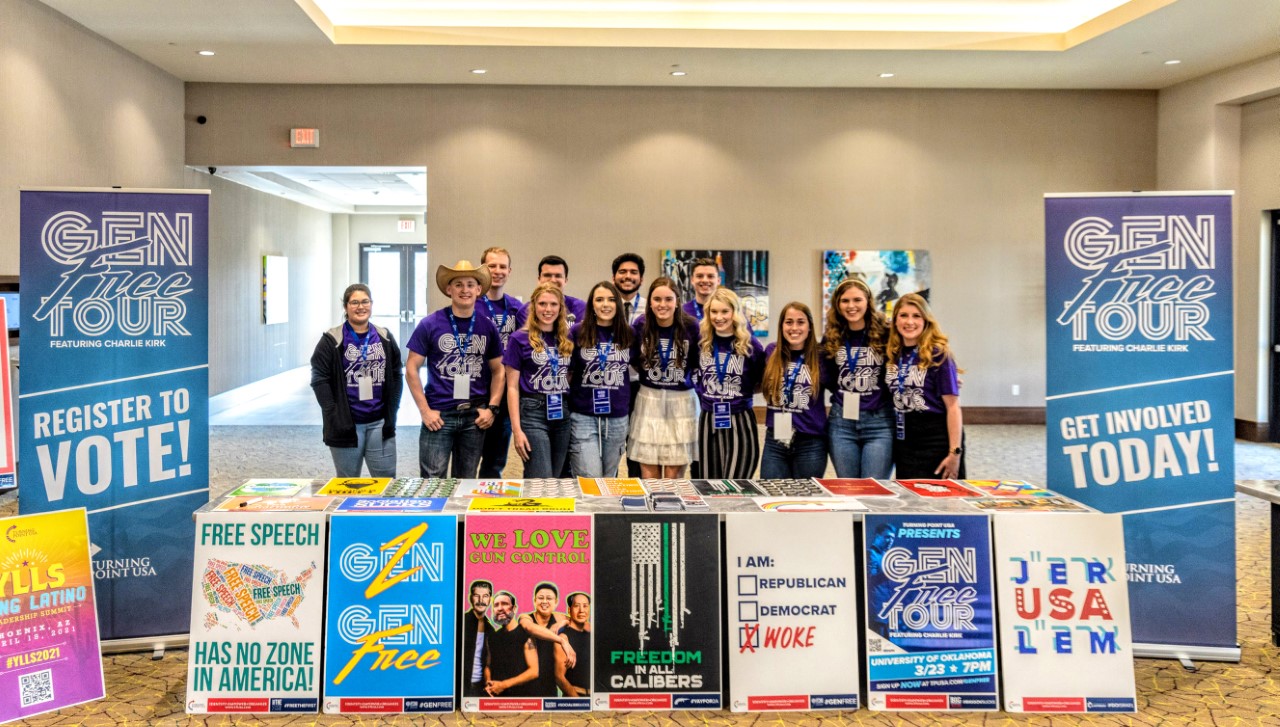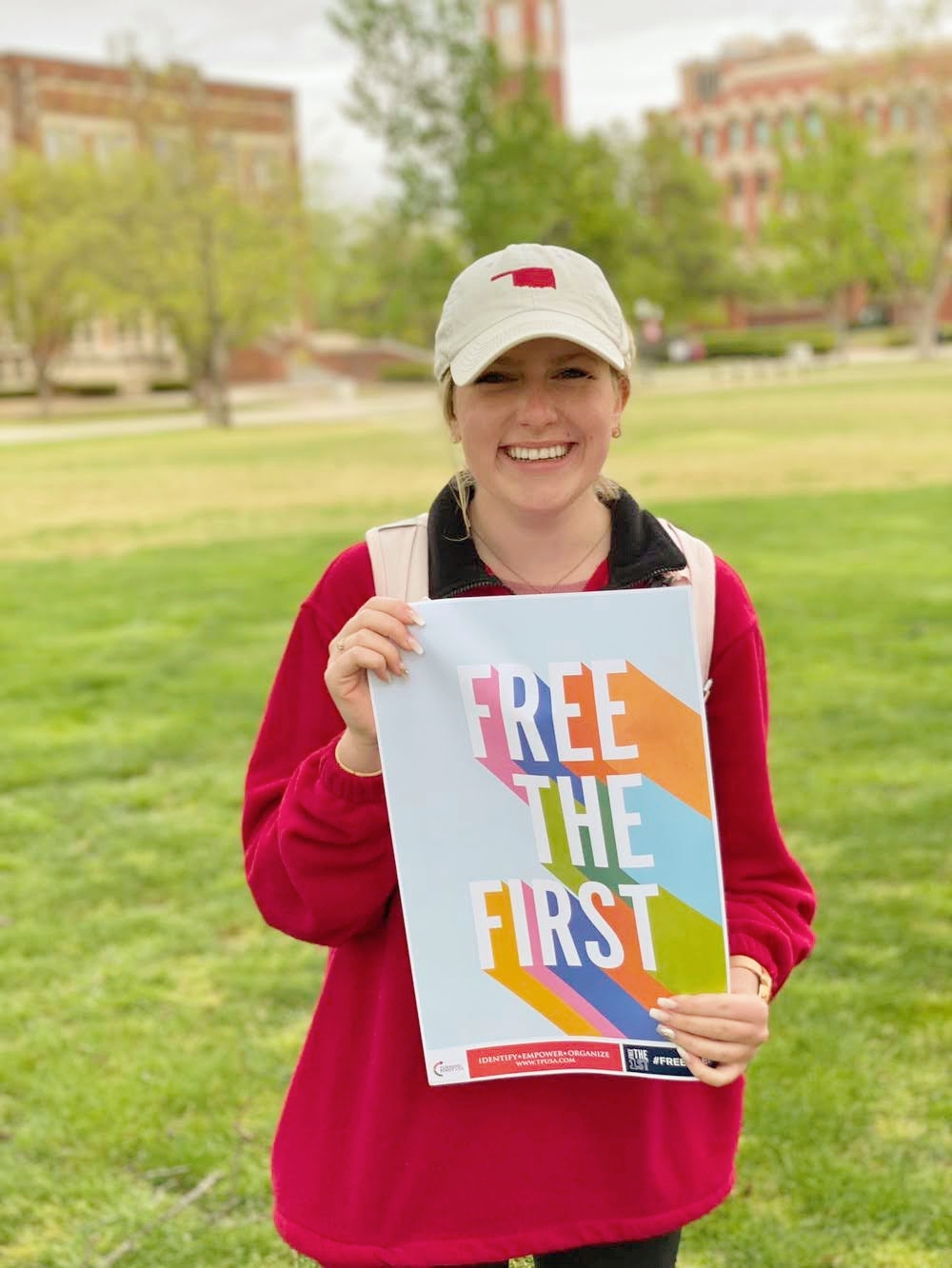Student Spotlight: Kiara Kincaid
Fighting Censorship With More Speech
- “I do not always feel welcome on campus. As a conservative, it can feel like there isn’t anyone on your side or someone who is willing to set differences aside and work towards a common goal, preserving free speech for all.”
- “Many professors make an effort to intimidate students that they may disagree with and, in turn, students will self-censor in fear of being ostracized by their professors and peers.”
- “Conservatives can change the culture on our campuses by implementing more speech and not being intimidated into silence.”

Kiara Kincaid
University of Oklahoma
Political Science, Constitutional Studies
You’ve written about censorship at the University of Oklahoma for the National Review. What has been your personal experience with chilled speech in the classroom?
During my first semester in college, I was enrolled in a public speaking class. On the first day, the professor introduced himself and told us his personal opinion on current political issues. All semester, he would not allow the students to get political in our speeches or respond to his comments and opinions. Our last assignment of the semester was to write a persuasive speech on any topic of our choice. I chose to write about why America is the greatest country in the world. A week before my speech was due, my professor asked me to stay after class to go over my outline. He went line by line, told me how much he disagreed with my argument, and told me to change my speech. I was informed that my failure to change my speech by the next week would be reflected in my grade, which it did.
After presenting to my class, his notes and critiques of my speech had nothing to do with my ability to speak to an audience, my writing skills, or the quality of research I had presented, but only his personal opinions on the topic. This happens all too often to college students and many would much rather stay silent and get a good grade than exercise their right to speak freely.
At your school, teachers were instructed to read a controversial text called “When Speech Becomes Unfree Speech” by Ibram X. Kendi and implement its principles in the classroom. Can you explain the teaching associated with this text and why it might prove dangerous for American college students?
In his article, Ibram X. Kendi defines “unfree speech” as speech and ideas not supported by facts. He argues the press should not be able to publish stories “without informing readers there is no truth to [their] claims.” He maintains that free speech is based in facts, whereas unfree speech is based in “falsehoods.” Opinions are just that, opinions (according to Kendi).
In my opinion, however, to require that all speech be backed up with facts does not allow for the free flow of thoughts and ideas. For speech to be stifled in the classroom under a vague definition of “unfree speech” leaves room for professors and university administrators to abuse this power and silence students with whom they disagree. The principles in this article would allow professors and administrators to set speech guidelines in classrooms or for school papers, which would effectively eliminate controversial ideas. Even worse, embracing the unconstitutional concept of “unfree speech” would contribute to the self-censoring that many students experience when they believe their ideas and opinions are unwanted and could get them in trouble.
As president of the Turning Point USA chapter at the University of Oklahoma, has the school’s administration treated your group fairly? Do you (and your viewpoints) feel welcome on campus?

The University of Oklahoma administration has attempted to silence my TPUSA student group in the past. In the Fall 2020 semester, we invited Ann Coulter to speak on campus. We were met with opposition from the university and the student government─ attempts to overcharge us for the event, revoke our funding, and kick us off campus.
I do not always feel welcome on campus. As a conservative, it can feel like there isn’t anyone on your side or someone who is willing to set differences aside and work towards a common goal, preserving free speech for all. The number one comment I hear from students when they join Turning Point is that they don’t feel welcome in their classes, extracurriculars, or other student organizations because of their conservative viewpoints. Many professors make an effort to intimidate students that they may disagree with and, in turn, students will self-censor in fear of being ostracized by their professors and peers.
You are minoring in Constitutional Studies. Do you feel that the First Amendment is understood and upheld by your student peers?
Fortunately, within the Constitutional Studies department, many of my peers understand and seek to uphold the First Amendment. I have noticed this trend in the way our Debating Constitutional Controversies class has voted in mock trials on cases related to the First Amendment, and also in personal conversations I have had with students who do not agree with me politically. It is reassuring to see that many students, in my experience, understand the importance of free speech and want to protect it. Too often, it’s the faculty and administrators that hold us back.
What can conservative students do to protect their free speech rights in college and beyond?

My best advice to conservative students in college and beyond is to always remember that the Constitution is on your side. I encourage you to be strong in your convictions and stay true to your beliefs. What the conservative movement needs are more students who are willing to stand up in their classrooms, challenge colleges and universities when they attempt to silence you, and encourage your conservative peers to do the same. Conservatives can change the culture on our campuses by implementing more speech and not being intimidated into silence.
